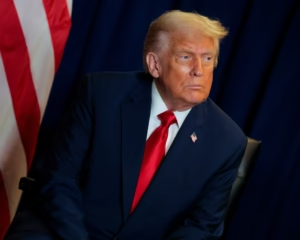Trump’s Executive Order Overhauls U.S. Elections: Proof of Citizenship Now Required
President Donald Trump has signed a significant executive order mandating proof of citizenship for voter registration in federal elections. This new directive requires all prospective voters to present valid documentation, such as a U.S. passport or a government-issued ID, to register and cast their ballots. Additionally, the order stipulates that all ballots must be received by Election Day to be counted. This policy aims to enhance election integrity and prevent voter fraud, but it has sparked legal and political debates nationwide.
Key Provisions of the Executive Order
To provide a clearer understanding of the executive order’s impact, here are its key provisions:
| Provision | Description |
|---|---|
| Proof of Citizenship Requirement | Voters must provide documentary evidence of U.S. citizenship when registering to vote, ensuring that only eligible citizens participate in federal elections. |
| Election Day Ballot Deadline | All mail-in ballots must be received by the close of polling stations on Election Day; late ballots will not be counted. |
| Federal Funding Conditions | States failing to comply with this mandate risk losing federal funding for election administration. |
| Data Sharing Among Agencies | Federal agencies will collaborate to cross-check voter rolls, identifying and removing any non-citizens from the registration lists. |
Political and Legal Implications
Supporters’ Perspective
Supporters of the executive order argue that these measures are essential for securing the election process and restoring public confidence. Proponents believe voter fraud, although rare, undermines democracy and that a citizenship verification process will eliminate potential irregularities. Republican leaders have voiced strong support, calling it a “common-sense safeguard” to protect the integrity of the vote.
Data Point: According to a 2023 Pew Research Center survey, 74% of Republican voters believe stricter voting laws are necessary to prevent fraud, despite little evidence of widespread fraudulent voting.
Opposition and Legal Challenges
On the other hand, civil rights groups and voting rights advocates warn that the executive order may suppress voter participation, especially among marginalized communities, elderly citizens, and those without easy access to required documentation. Critics argue that the U.S. Constitution grants states the authority to regulate their elections, making this federal mandate vulnerable to legal challenges. Organizations such as the ACLU and voting rights groups have announced plans to file lawsuits against the order, citing concerns over voter disenfranchisement.
Legal Precedent: In 2024, the Supreme Court ruled against Arizona’s attempt to require proof of citizenship for voter registration, stating it conflicted with the federal Voting Rights Act.
Historical Context and Precedents
This move follows a history of Republican-led efforts to implement stricter voter ID laws. Previous attempts at similar measures have faced legal battles and opposition from advocacy groups, leading to mixed rulings from courts. Experts anticipate that Trump’s executive order may follow a similar path, with legal scrutiny potentially delaying or overturning its implementation.
Impact on the 2026 and 2028 Elections
The timing of this executive order is crucial as the country gears up for the 2026 midterms and the 2028 presidential election. If upheld, the new regulations could reshape voter turnout, particularly affecting mail-in voting and same-day registrations. States with high numbers of mail-in voters, such as California and Pennsylvania, could see significant shifts in election logistics and participation rates.
Projected Impact:
- Mail-in Voting: Could decline in states with strict enforcement.
- Voter Registration: Increased challenges for first-time voters.
- Litigation & Delays: Court battles may affect implementation timelines.
Public Reaction and Expert Opinions
Political analysts suggest that while the order appeals to Trump’s voter base, its impact on actual voter fraud prevention remains uncertain. Election experts highlight that voter fraud is exceedingly rare in the U.S., with multiple studies confirming that instances of non-citizen voting are statistically negligible. Nonetheless, the order fuels ongoing debates about election security and access, making it a pivotal issue for upcoming election cycles.
Election Integrity vs. Voter Suppression
[Election Integrity Debate]
|
----------------------------------
| |
[Stricter Voter Laws] [Voter Rights Concerns]
| |
[Increased Security] [Potential Disenfranchisement]
| |
[Reduced Fraud Cases] [Legal Challenges Expected]Conclusion
Trump’s executive order mandating proof of citizenship for voter registration is poised to be one of the most contentious election policies in modern history. While its supporters champion it as a necessary step to protect democracy, critics argue it could disproportionately affect eligible voters and invite legal challenges. As the legal battles unfold, the order’s implementation will play a critical role in shaping the future of U.S. elections.





